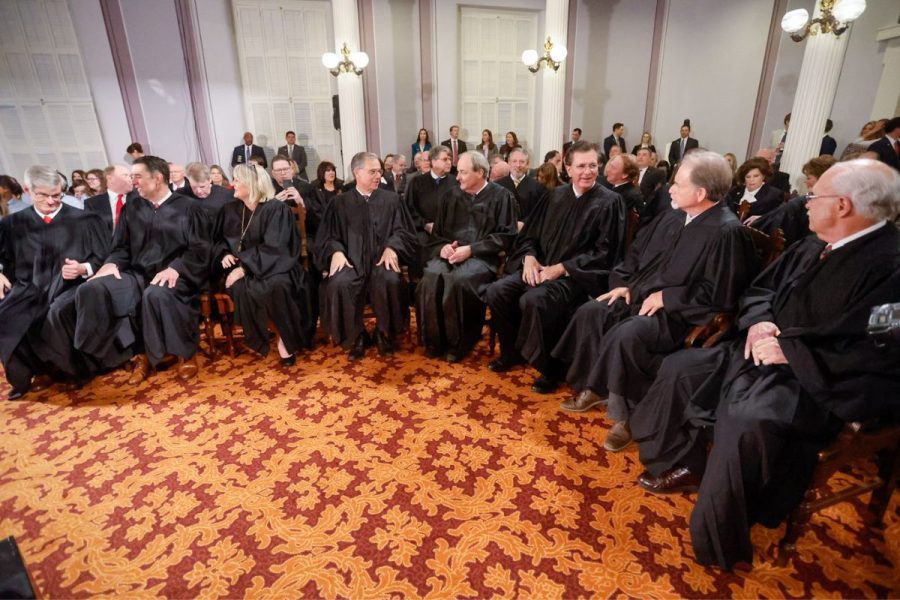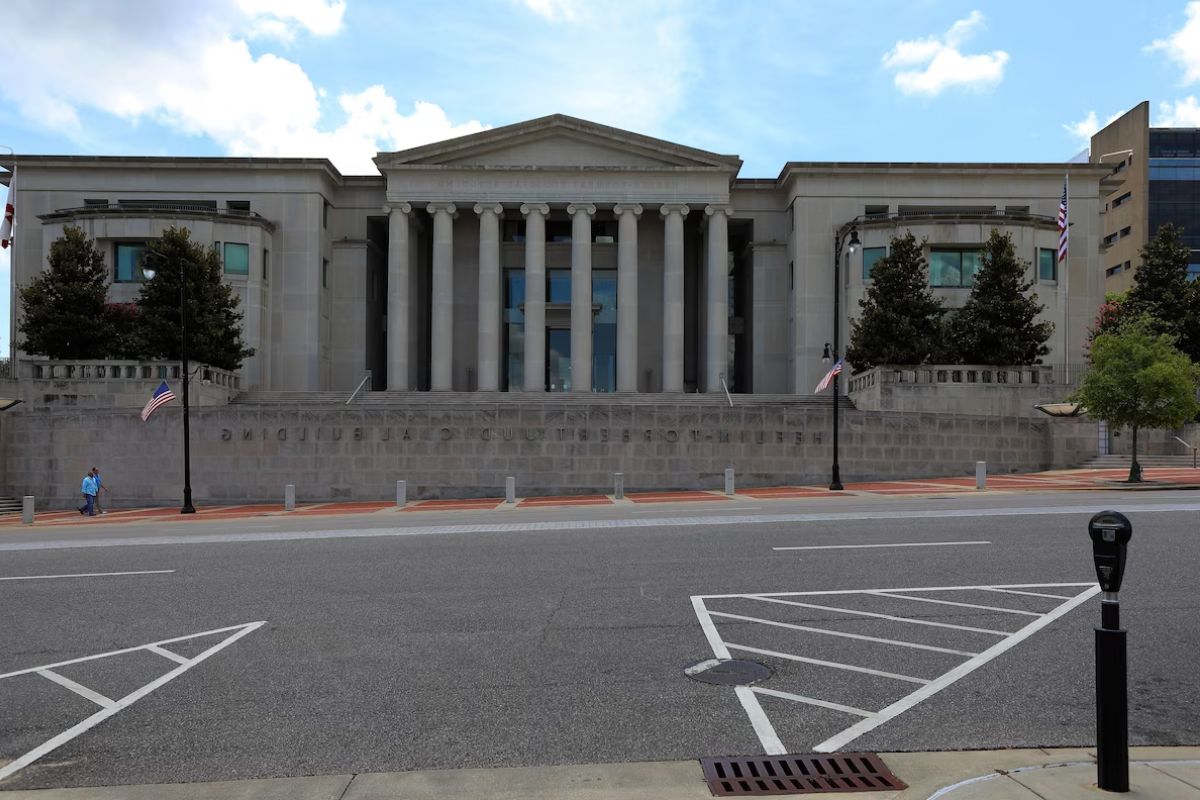Alabama Supreme Court End to IVF: In a recent and potentially groundbreaking decision, the Alabama Supreme Court has cast a shadow of uncertainty over the future of In Vitro Fertilization (IVF) treatments in the state.
The ruling, centered on the fate of frozen embryos, has sparked debates on the legal, ethical, and medical implications surrounding assisted reproduction.
As stakeholders await the full implications of this judgment, questions loom over the potential ramifications for fertility clinics, patients seeking IVF, and the broader landscape of reproductive rights in Alabama.
Key Takeaways
- Unclear legislation on frozen embryos as ‘children’ may halt IVF treatments.
- Legal vulnerability threatens fertility clinics and access to IVF.
- Broad court interpretation poses challenges for patient rights and clinic practices.
- Alabama’s fertility care faces uncertainty, impacting access and treatment options.
Alabama Supreme Court Rules on Frozen Embryos: Impact on IVF
The recent ruling by the Alabama Supreme Court regarding frozen embryos has sparked significant debate and raised crucial questions about the future of in vitro fertilization (IVF) within the state. The decision, which classified frozen embryos as ‘children’ outside the womb, has sent ripples through the medical and legal communities. Justice Jay Mitchell’s interpretation of the 1872 Wrongful Death of a Minor Act has potentially far-reaching implications for individuals seeking IVF treatments in Alabama.
This ruling has brought to light the need for clear legislation that addresses the status and rights of frozen embryos in the context of IVF. It has also raised concerns about the potential impact on fertility clinics and the accessibility of reproductive technologies in the state. As proponents and opponents of the ruling continue to voice their opinions, the future of IVF in Alabama remains uncertain.
Stakeholders in the fertility industry, lawmakers, and individuals considering IVF treatments are closely monitoring the developments following this groundbreaking decision.

ALSO READ: Alabama Judges Redefine Law In-Vitro Embryos Now ‘Children’?”
Potential Threat to Fertility Clinics and Access to IVF
Amid concerns raised by the recent Alabama Supreme Court ruling on frozen embryos’ classification, the potential threat to fertility clinics and access to IVF within the state has garnered significant attention from both patient advocates and industry experts.
The majority opinion in the ruling has sparked fears that the future of IVF in Alabama may be in jeopardy. This concern stems from the possibility of legal vulnerability faced by fertility clinics, which could now be susceptible to lawsuits regarding the disposition of frozen embryos.
Barbara Collura, CEO of RESOLVE: The National Infertility Association, has voiced apprehension over the implications of this decision, particularly in the context of a wrongful death lawsuit. Collura highlighted the potential barrier this ruling may create for individuals seeking IVF treatment in the state, raising uncertainties about the accessibility and viability of such services moving forward.
The ruling’s ripple effects on fertility clinics and the broader landscape of IVF in Alabama are now subjects of intense scrutiny and speculation within the reproductive health community.
Court’s Interpretation and Implications
In light of the recent Alabama Supreme Court ruling on frozen embryos’ classification, a scrutiny of the Court’s interpretation and its implications reveals a significant impact on the future of IVF in the state. The decision by Justice Mitchell has raised several important points that could shape the landscape of fertility treatments in Alabama:
- Broad Interpretation: The Court’s broad interpretation of the state’s Wrongful Death of A Child Act expands its application to include unborn children, potentially affecting the legal status of embryos.
- Legal Precedent: This ruling sets a legal precedent that could have far-reaching consequences not only for IVF clinics but also for any individual or entity involved in the storage or handling of embryos.
- Ethical Considerations: The decision brings to light complex ethical considerations surrounding the status of embryos and the rights they may possess.
- Patient Rights: Patients undergoing or considering IVF treatments may face heightened concerns regarding the ownership and disposition of their embryos.
- Regulatory Impact: The ruling may prompt a reevaluation of existing regulations governing IVF practices and storage facilities in Alabama.
Challenges for Fertility Care in Alabama
Facing the Alabama Supreme Court’s recent ruling on the classification of frozen embryos, the landscape of fertility care in the state is poised to encounter significant challenges ahead.
Barbara Collura, representing RESOLVE, has voiced concerns about the potential implications of the court’s decision on infertility care in Alabama. The ruling, which seeks to determine the legal status of fertilized eggs, could have far-reaching effects on access to in vitro fertilization (IVF) treatments within the state.
If this decision restricts or complicates the use of frozen embryos in IVF procedures, it may create obstacles for individuals seeking fertility treatments and the clinics providing such services. This development raises uncertainties about the future regulatory environment for fertility care in Alabama and the extent to which legal considerations may impact the availability and delivery of assisted reproductive technologies.
As clinics navigate the implications of this ruling, they may need to reassess their practices and protocols to ensure compliance with the evolving legal framework surrounding fertility treatments in the state.

Background and Context of the Lawsuit
The legal dispute surrounding the embryos stored at a Mobile fertility clinic in 2020 has sparked significant debate and raised crucial questions regarding the legal status and implications of such cases.
The incident involved a patient accessing the clinic and dropping several frozen embryos, leading to a lawsuit under the Wrongful Death of A Child Act.
The court’s ruling in this case is pivotal as it delves into the complex legal territory surrounding frozen embryos and its potential consequences on the fertility treatment landscape.
To grasp the full background and context of this lawsuit, consider the following:
- The specifics of the incident at the Mobile fertility clinic in 2020.
- The legal framework governing the storage and ownership of embryos.
- The implications of the court’s decision on future fertility treatments.
- The responsibilities of fertility clinics in safeguarding stored embryos.
- The potential impact on individuals seeking reproductive assistance.
Conclusion Of Alabama Supreme Court End to IVF
The recent ruling by the Alabama Supreme Court regarding frozen embryos has raised concerns about the future of IVF treatments in the state.
The decision has the potential to impact fertility clinics and access to these reproductive services. The interpretation of the court’s ruling and its implications for fertility care in Alabama present challenges that need to be addressed.
The outcome of this case could have significant consequences for individuals seeking assisted reproductive technologies in the state.

